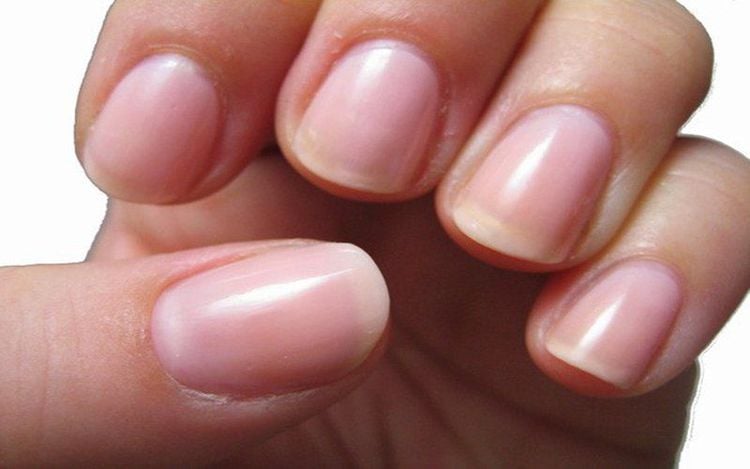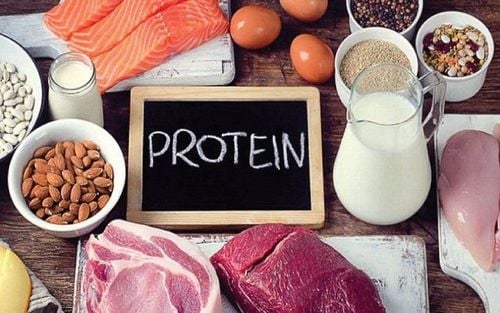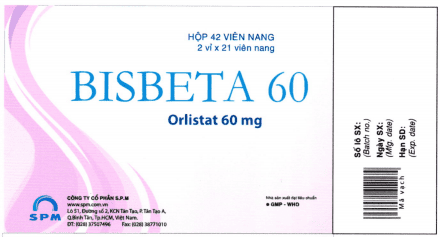This is an automatically translated article.
Nutrition is an essential part of human health. Through daily nutrition, you can realize your current and future health status. Combining healthy eating with active lifestyle habits can significantly reduce the risk of cancer, diabetes, obesity or heart disease.
1. Effects of nutrition on health
Nutrition is one of the most important factors, closely related to the state of human health. An unhealthy diet can cause health problems, such as cancer, diabetes, heart disease or high blood pressure.
According to statistics, in the United States, about one-third of adults (33.8%) and about 17% of children aged 2-19 are obese due to unhealthy eating habits.
Even healthy people, if they follow an unscientific diet for a long time, they will face great health risks, such as illness and even death. These risks include heart disease, high blood pressure, osteoporosis, type 2 diabetes, and some cancers.
In particular, risk factors for chronic diseases in adults, such as high blood pressure or diabetes, are increasingly appearing in young people. Perhaps, this is the result of unhealthy eating habits.
A reasonable diet is the bridge for a healthy body, thereby significantly reducing the risk of chronic diseases. This is a very important thing that you should not ignore. By choosing smart foods and following a diet full of nutrients, the body will stay healthy, supple and active.

Chế độ ăn uống khoa học sẽ giúp cung cấp đủ dưỡng chất và năng lượng cho cơ thể
2. Signs that the body is deficient in nutrients
The health status of the human body is accurately reflected through nutrition. A body will always be in a healthy state when it is fully loaded with essential nutrients, on the contrary, when there is an imbalance in nutrition, the body will show the following obvious signs:
2.1. Feeling tired Fatigue and lack of energy are the most common symptoms of an iron deficiency. A deficiency of this mineral can lead to anemia because there aren't enough red blood cells to pump oxygen and deliver nutrients to all parts of the body.
When you have anemia, your body will show signs of abnormal paleness. In addition, a number of other health conditions can also cause fatigue, such as depression, thyroid disease, or heart disease.
2.2. Dry, brittle hair hair is mainly nourished from protein. As we age, our hair becomes weaker, drier, sparser, and more prone to breakage. This could be a sign that their diet is inadequate.
Brittle hair is the result of deficiencies in nutrients such as protein, iron, folate, vitamin C and several other essential fatty acids.
In addition, other health conditions such as thyroid problems also affect your hair and skin more or less.
2.3. Spoon-shaped nails Just like hair, nails can show early warning signs of a poor diet. Poor nutrition will lead to a number of changes in the nails, including becoming thin and brittle, which can detach from the finger.
Especially, when the body is deficient in iron, the nails will curl up like a spoon, especially in the index and middle fingers. This condition is called koilonychia. In addition, nail problems can also occur due to a lack of protein, calcium and vitamins A, B6, C and D in the body.

Những dấu hiệu bất thường ở móng tay cũng góp phần cảnh báo về tình hình sức khỏe của bạn
2.4. Dental and mouth problems Angular cheilitis is a cracked or inflamed condition in the corners of the mouth. This could be a warning sign for an iron or riboflavin (B2) deficiency. In addition, the deficiency of iron and vitamin B can cause the tongue to become pale and abnormally swollen.
Vitamin C deficiency leads to a high risk of bleeding gums, stimulates the development of gum disease, more seriously, tooth loss.
2.5. Diarrhea, constipation Constipation can occur if the body is not provided with an adequate amount of fiber, which is an important nutrient for the digestive system, often found in green vegetables, fruits and other foods. whole grains.
Besides, the malabsorption of nutrients is also the main cause of chronic diarrhea. Malabsorption can be caused by surgery, infections, certain medications, heavy alcohol abuse, or digestive disorders, such as Crohn's disease and Celiac sprue. Therefore, when diarrhea persists, it is best to see a doctor for advice and early treatment.
2.6. Mental problems An unhealthy diet can be a major contributor to depression. Furthermore, it interferes with many other mental functions, including mood swings, irritability, apathy, loss of interest in things you used to enjoy, disorientation, or forget or lose memory.
2.7. Easy bruising If you bruise easily without knowing the exact reason, it is most likely due to an improper diet. Deficiencies in important nutrients like vitamin K, vitamin C and protein make wound healing take longer.

Thiếu vitamin quan trọng khiến cơ thể dễ bị bầm tím
2.8. Poor Immune System A poor diet can make the immune system weak, unable to fight off diseases.
To enhance the health of the immune system, you should add nutrients such as zinc, protein, along with vitamins E, C, A.
3. Tips on healthy nutrition
The British have a saying that "As you eat, so will you". This saying refers to the close relationship between diet and human health.
The foods that we consume on a daily basis are major determinants of our overall health. This is also shown in different stages of a person's life. Especially in young people, if you continue to maintain unhealthy eating habits, you will soon face the risk of disease later on.
Therefore, establishing and following a balanced, appropriate nutrition from a young age will help improve and protect the body to stay healthy.
Here are some tips to help you ensure a complete and healthy diet. Specifically:
Protein supplements: Protein is one of the most important nutrients for the body. It provides an abundant source of energy to help maintain body strength and weight. You can add protein to your daily diet through foods, such as eggs, milk, nuts, cauliflower, bananas, avocados, ...

Protein cung cấp một nguồn dinh dưỡng dồi dào cho cơ thể
Calcium supplements: Calcium is a mineral that is essential for bone health. When the body is deficient in calcium, it will lead to bone problems, including osteoporosis, fractures, and decreased bone density. To prevent these risks, you can get calcium through natural food sources, such as yogurt, nuts, green beans, sweet potatoes, broccoli, oranges, etc. Take vitamins synthesis: nutritionists recommend that everyone should regularly take multivitamins, especially the elderly or people with chronic diseases, such as heart disease or diabetes. Increase fiber: According to the American Dietetic Association, most people need about 20-35 grams of fiber per day, depending on age and gender. An adequate intake of fiber can prevent a number of diseases such as constipation, heart disease and cancer. Fiber is most commonly found in whole grains, fruits, and vegetables. Limit fast food: Snacks and fast foods are convenient, delicious, and cheap, but they contain a lot of fat, sugar and salt, which has no health benefits. This is a favorite dish of many people, especially children and teenagers. Regularly eating fast food will lead to a higher risk of diseases such as obesity, heart disease, or diabetes. Implement other healthy habits: in addition to applying a balanced diet, you can combine them with regular exercise, limit alcohol and tobacco to effectively improve your health conditions. health and keep the body flexible and supple. Customers can directly go to Vinmec health system nationwide to visit or contact the hotline here for support.
Articles refer to sources: hhs.gov, webmd.com













